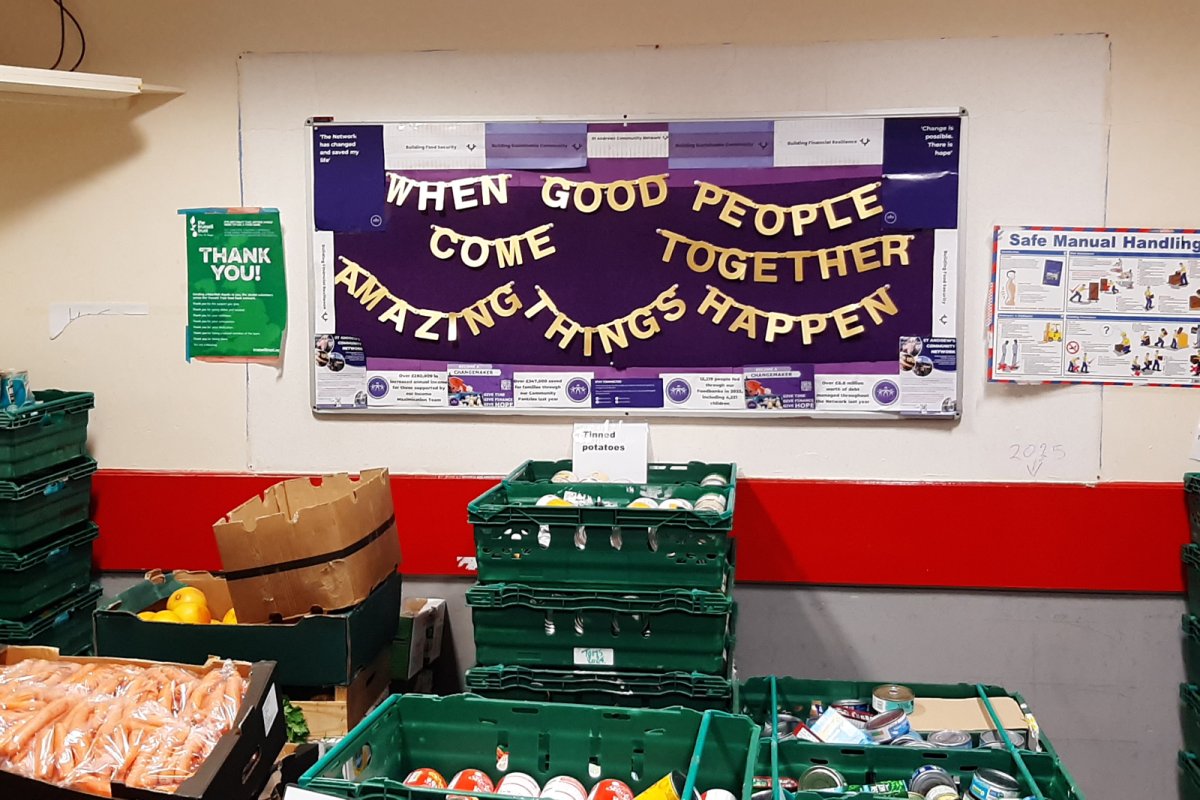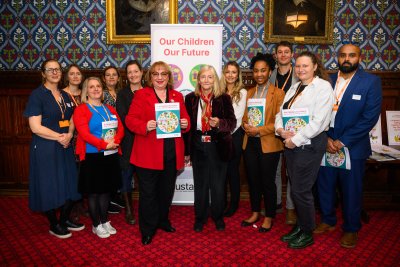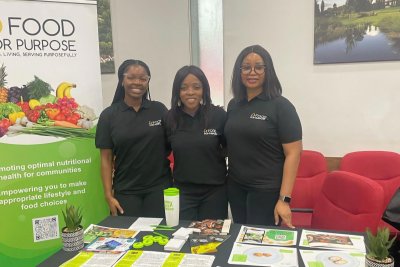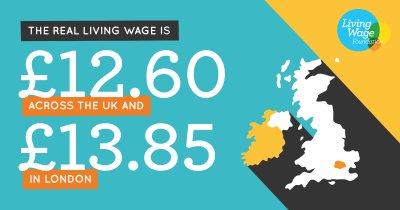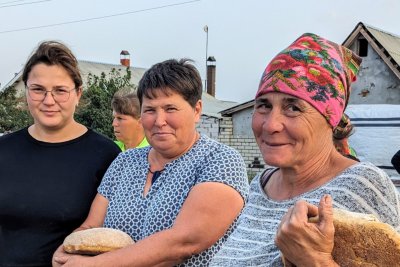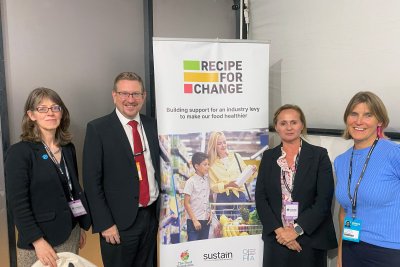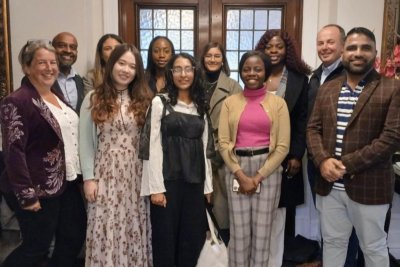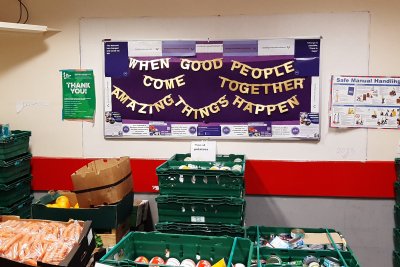 St Andrews Community Network food hub. Credit: Sofia Parente
St Andrews Community Network food hub. Credit: Sofia Parente
Connecting communities and enterprise through food
Affordable food projects based on low-cost trading models such as pantries, community cafes, food coops and other community food projects allow service users to get more for less, often alongside wrap around support and a space to socialise. They go beyond the food bank to re-invest income in the community and the financial security of the project. Sustain has started a new project funded by the Barrow Cadbury Trust to explore what good practice looks like and demonstrate how social investment in this sector can lead to social return.
Sign up to Good Food Enterprise email list
Sustain’s new project Connecting Community Food Enterprises is being delivered in partnership with four local partners Brighton and Hove Food Partnership, Bury Voluntary Community and Faith Alliance, Feedback Liverpool, and Waltham Forest Food Partnership, as well as the business and learning support partner Greenwich Cooperative Development Agency (GCDA).
The aims of the project are to demonstrate that social investment into the community food enterprise sector can lead to clear social return, and to produce resources to support community food enterprises to develop sustainably. Our project provides modest capacity in these four areas of the UK to help established local infrastructure organisations boost support and attract social investment for good models; enable shared evaluation and learning; and build the case and advocate for well-evidenced work through more local authorities, social landlords and other social investors. It will produce tools and resources to help other community food enterprises to develop strategically and operate successfully, as well as establishing a robust partnership to advocate for the sector.
What community food enterprises in the project have in common
In each local area, Brighton and Hove, Bury, Liverpool and Waltham Forest, the partners have recruited between four and ten community food projects to support them to grow into enterprises or develop more enterprising activities, and to understand and promote social investment in these community-based food projects, as they seek to be more financially and operationally sustainable. An initial baseline evaluation offers insight into where the projects are on their journey, their confidence in various areas of operating as food businesses, and to identify which learning support they would find most useful.
Initial findings show that most projects operate a pantry or social supermarket model, community café or kitchen, alongside a smaller number of social enterprises trading fruit and veg and emergency food projects. Most offer wrap around support such as financial and debt advice, employment advice or signposting.
There is a charge for accessing food in most projects. This is usually in the form of a monthly subscription, set fee or sliding scale where some users subsidise the food for others who cannot afford the full fee.
Alongside providing affordable food for people experiencing food insecurity, these projects have in common as part of their mission to create a space for the community to come together around food, to reduce social isolation and to support people to move out of poverty.
They are also taking steps to be inclusive to people from diverse background and groups at risk of food insecurity, and are linked to local or national networks to work on advocacy and capacity building.
Liverpool field visit and workshop
To come together as a project group and start delivering some of the training and support required by the enterprises, we visited St. Andrew’s Community Network food hub in Liverpool which serves 12 pantries and 11 food banks, mostly across the north of the city. The food banks are affiliated to Trussell Trust. The pantries follow the Your Local Pantry model with £3.50 membership fee allowing access to 10 items, which includes food sourced from local suppliers and wholesalers to supplement surplus food and ensure the nutritional balance of food provided. There’s been a lower than intended transition from food bank to food pantries, which is the issue they wish to explore through this project.
The first food bank opened 12 years ago at a church and as other churches wanted to get involved, St Andrews provided capacity for expansion. Alongside food provision, all projects provide benefits, debt and financial advice on site partnering with Community Money Advice. The operation has grown over the years to provide a service to 13,000 food bank users and 17,000 pantry users a year, £0.5M saved on food, 21 members of staff and £1M turnover. Main sources of funding are charitable foundation, donations from local businesses and individual donors.
In the first workshop with GCDA, we explored what kind of training and support will be more useful to the group as a whole and delivered to individual enterprises. Financial stability, sustainable operational models and reducing reliance on surplus food are key concerns shared across this sector. Tackling the increasing costs of food, energy and premises with costing methodology for accurate forecasting, diversifying income streams and food supply are at the forefront of their priorities as businesses. They prioritise learning, training and support on financial models, measuring impact and evaluation, product and service development and diversification, and legal structures. These will be delivered in subsequent group workshops and one-to-one sessions.
Next steps
A field visit to Waltham Forest, followed by technical workshop delivered by the GCDA, is planned for November.
Sustain will continue to publish case studies of community enterprises and interviews with social investors in the coming months. If you are interested in building community wealth, promoting local food, and making good food accessible to everyone sign up to the Good Food Enterprise email list to receive future news and resources.
Sign up to Good Food Enterprise email list
Good Food Enterprise: Working to provide food that is good for people and the planet, and support local production playing a part in community beyond trading.
Sustain
The Green House
244-254 Cambridge Heath Road
London E2 9DA
020 3559 6777
sustain@sustainweb.org
Sustain advocates food and agriculture policies and practices that enhance the health and welfare of people and animals, improve the working and living environment, promote equity and enrich society and culture.
© Sustain 2024
Registered charity (no. 1018643)
Data privacy & cookies
Icons by Icons8
